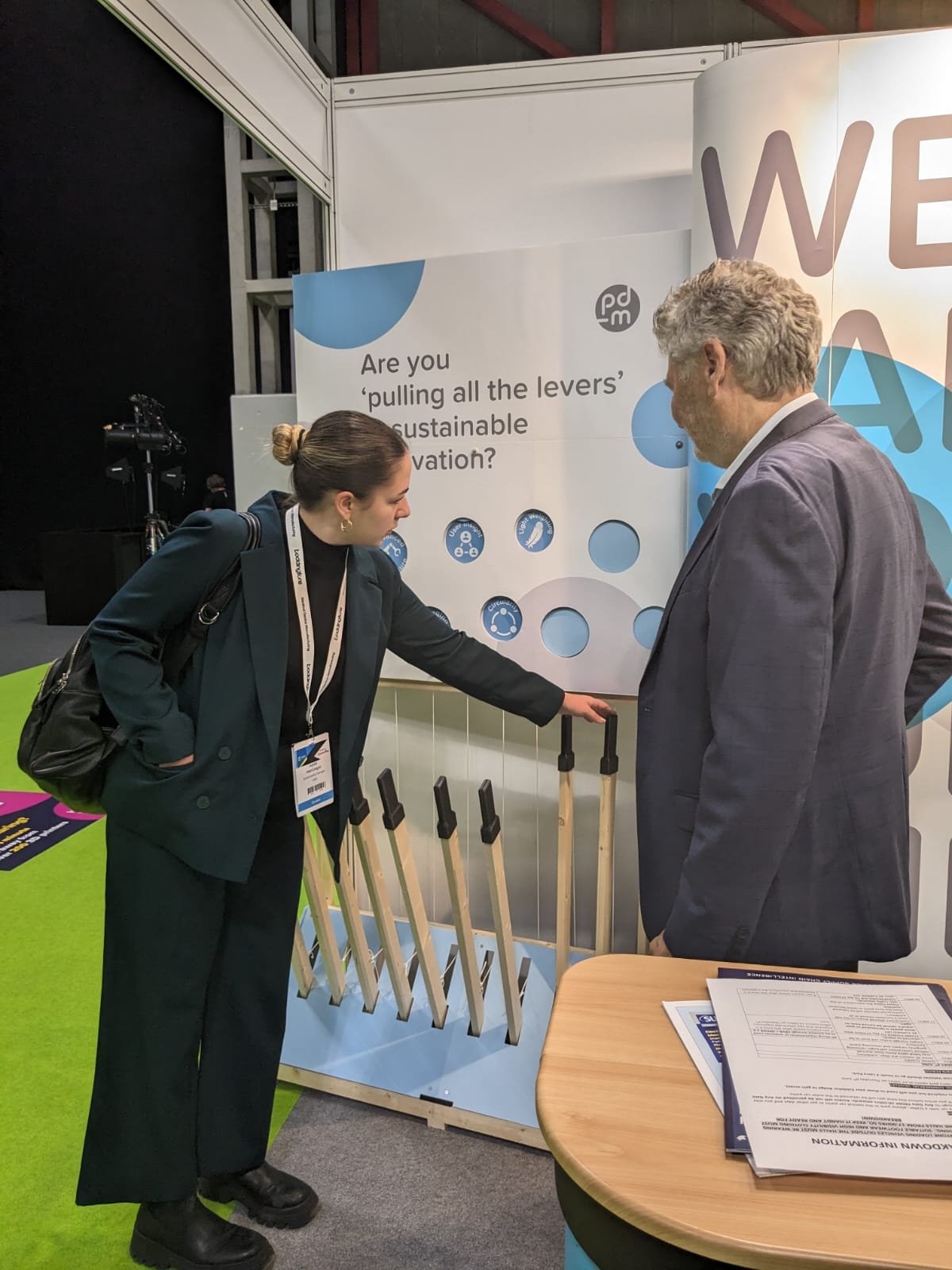Sharing our insights to Sustainable Product Innovation, focus on Health Tech
At Pd-m we are a team of passionate change-makers who have the skills, experience, and knowledge to help organisations on their journey towards Net Zero. Here we share ‘10 levers’ you can pull to achieve commercially viable, sustainable product innovation solutions.
As the Health Tech industry in the United Kingdom strives to achieve net-zero emissions, sustainable product innovation has become an urgent priority. Driven by the nation's ambitious climate goals and a growing demand for more sustainable solutions. Health Tech companies are exploring strategies to reduce their environmental footprint, improve margin whilst enhancing patient outcomes.
The path to sustainability requires a holistic approach, encompassing every stage of the product life cycle, from material sourcing to end-of-life management. To navigate this complex landscape, we're sharing ten levers that Health Tech organisations can leverage to drive sustainable innovation.
Transportation Optimisation: Streamlining transportation routes, modes, and logistics can significantly reduce carbon emissions associated with product distribution. This includes strategies such as adopting electric vehicles, improved forecasting, and sourcing materials and components locally to minimise transportation distances.
Advanced Manufacturing: Embracing cutting-edge manufacturing techniques like additive manufacturing (3D printing), automation, and digital manufacturing can enhance resource efficiency, reduce waste, and enable more sustainable production processes. These technologies open up new opportunities for on-demand, localised production and smart factory solutions that optimise energy and material usage.
Onshoring, Reshoring and Nearshoring: This can dramatically reduce transportation emissions and support local economies. By bringing manufacturing closer to home, Health Tech organisations can build resilience against global factors as well as building stronger collaborations to implement sustainable practices up the supply chain.
User-Centred Design: Understanding user needs and behaviours through comprehensive user research and co-design can lead to more efficient and sustainable product designs that better meet user requirements, reducing waste and extending product life cycles.
Sustainable Packaging: Adopting sustainable packaging solutions, such as biodegradable or recycled materials, can minimise environmental impact by reducing waste and enabling circularity. This includes exploring alternatives to single-use plastics and exploring reusable packaging or take-back programs.
Circular Economy Principles: Embracing circular economy principles, such as product life extension, 'product as a service and re-manufacturing, and can significantly reduce waste and resource consumption. This involves designing products that are more durable but also have considerations for disassembly, repair, and material recovery.
Light weighting: Reducing product weight through strategic material selection and design optimisation can lower emissions and costs. This can be achieved through techniques like finite element analysis, tool optimization and material substitution.
Modular Design: Modular product designs enable easier repair, upgrade, and re-manufacturing, extending product life cycles and reducing waste. This involves designing products with standardised interfaces and interchangeable components, facilitating maintenance, upgrades, and component reuse.
Sustainable Care Pathways: Optimising care pathways and integrating digital solutions can improve patient outcomes while reducing resource consumption and emissions. This includes strategies like remote monitoring, virtual consultations, and streamlining care processes to minimise unnecessary resource use and travel.
Sustainable Materials: Selecting sustainable and responsibly sourced materials, such as bio-based or recycled materials, can reduce environmental impact and support circularity. Collaboration is needed with suppliers and QA/RA teams to ensure adherence to standards.
By addressing these ten levers holistically, Health Tech companies in the UK can drive sustainable innovation, reduce their environmental footprint, and contribute to the nation's net zero goals while improving patient outcomes and healthcare delivery.
The journey toward sustainability in the Health Tech sector is not without challenges, but it presents a unique opportunity for companies to pioneer innovative solutions that not only benefit the environment but also enhance patient care and foster long-term business resilience.
If you would like to learn more about how we can help you on your net zero journey, contact our Sustainability Lead Rich Shaw or book a free consultation here.
Watch, as Rich Shaw explores the 3 levers he finds most interesting and talked about during the Med-Tech Expo!


















